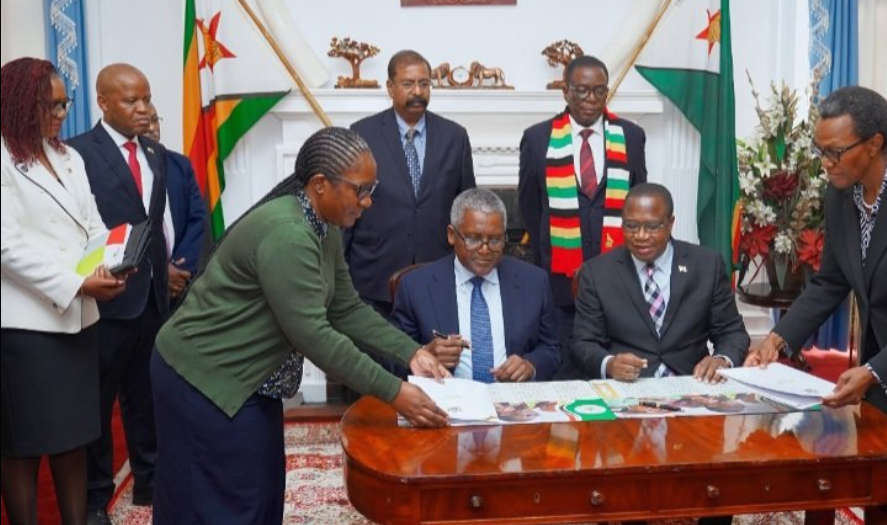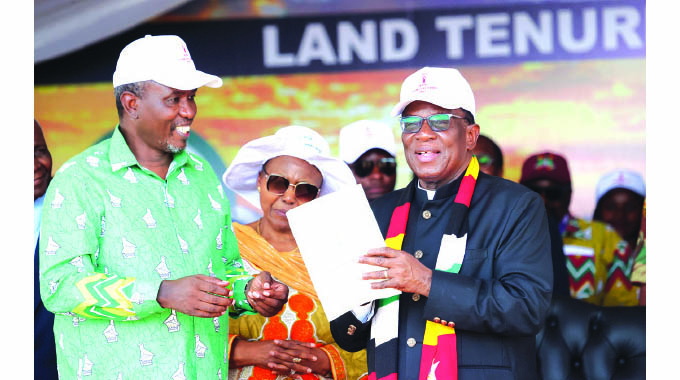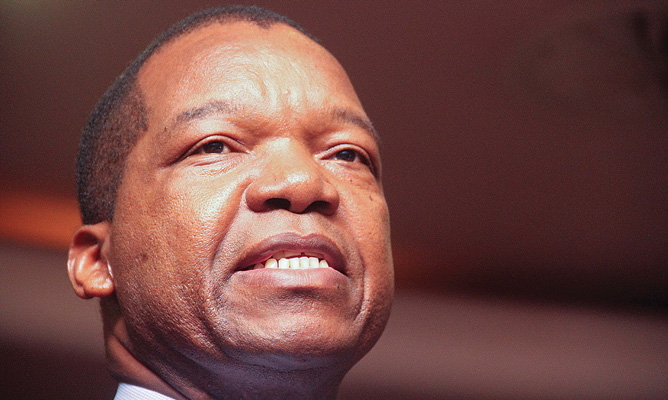Zimbabwe's central bank chief John Mangudya left interest rates unchanged, saying lowering the rates could be a moral hazard in the troubled country, despite his push to stimulate production and generate exports.
He said an interest rate cut could have unintended consequences and encourage speculative behaviour in the market.
"Lowering interest rates could be a moral hazard," he said. "We don't want people to borrow so they can buy foreign exchange."
Mangudya avoided key monetary policy interventions in his mid-term monetary policy review on Wednesday, opting instead to stimulate production and raise exports to ease the country's cash shortages.
Zimbabwe is grappling with an acute shortage of foreign exchange worsened by falling exports and over reliance on imports, a problem President Robert Mugabe's administration has tried to solve through protectionist interventions barring some imports.
"Efficient utilisation of foreign exchange, therefore, becomes essential in a situation in which the demand for foreign exchange is higher than supply, and exacerbated by lack of foreign finance. It is the discrepancy or mismatch between the supply and demand for foreign exchange, in a dollarised Zimbabwean economy, that cause cash shortages and scarcity premiums of between 5 - 25% in the informal or parallel markets," Mangudya said.
"The scarcity premiums or discounts are thus a symptom of excess demand for foreign exchange. It is therefore not the mediums of exchange - US dollar cash, bond notes, plastic money or the real time gross settlement (RTGS) - that cause premiums in the parallel markets or the multi-pricing system. It is the disequilibrium or mismatch between the domestic quantity of money (local dollars) and the supply of foreign exchange (foreign dollars) that cause cash shortages and, resultantly the scarcity premiums and the multi-pricing system."
The market feels the intrinsic value of the dollar in Zimbabwe was lower than the US unit, he said.
"In coming up with solutions to cash shortages, focus should therefore be on the sources of money creation (or supply) and its utilisation and not on the mediums of exchange," Mangudya added.
He said strong demand for foreign exchange was fueled by an increase in money supply stemming from greater spending by government, money creation - loans and overdrafts - by banks.
In his presentation, Mangudya said traditional monetary policy measures will not lift the economy from its position.
"We have to do things differently," he said. "Monetary policy interventions won't help our situation."
He said inflation will close the year around 2%.
"For years, we had deflation. Inflation at current levels is nothing to worry about as it is below the 7% for sub Saharan Africa," Mangudya said. "What is needed is inflation management. I don't think it will be at the level being touted by some of friends whom I can't mention by name (an apparent reference to the International Monetary Fund)." The fund recently said inflation would close the year at 7%.
Mangudya underscored the need to get companies producing.
Asked on how he would fund the productive sector, Mangudya said he wanted to sweat idle local Real Time Gross Settlements (RTGs) balances, a move analysts say is an ambitious feat.
But low nostro balances have meant that investors and companies seeking to make foreign payments or move their funds offshore end up with electronic US dollar balances in Zimbabwe banks.
"We are leveraging our local RTG's balances that are sitting on banks books. We met banks this week to discuss this issue. Not all banks are receiving exports. What we are saying is basically that there is dead money which we can invest in productive sectors," he said on the sidelines of the monetary policy review presser.
"Essentially, we are saying that if say an investor has money sitting in a bank and can't move the funds out, instead of the money just sitting there in the banks, we can invest it and stimulate production."
His comments come amid growing concerns government is behind a 200% growth in money supply growth between December 2015 and May this year.
Mangudya, who has aggressively been issuing Treasury Bills (TBs) to finance government fiscal deficits and settle debts with local creditors, denied he was dabbling in quasi fiscal activities, insisting his were productive financing activities.
"This is not quasi-fiscal. This is a proper productive sector financing structures where beneficiaries pay back both the principal and interest," he said.
Finance minister Patrick Chinamasa said a total US$900 million fiscal deficit in the 2016 financial year had been financed by TBs issuance, while another $900 million had been used to provide working capital financing to badly managed state enterprises.
Mangudya raised the amounts of foreign exchange Zimbabweans can take out of the country through border points from US$1000 to US$2000.
He said the central bank would set up a fund to allow investors on the local exchange to move money in and out of the country with ease.
A total US$2,9 billion was disbursed for imports and offshore payments between January and June this year, he said.
- zimbabwe independent
 Zimbabwe launches new airline
Zimbabwe launches new airline  Hichilema meets Chivayo
Hichilema meets Chivayo  Millions celebrate Diwali festival in India
Millions celebrate Diwali festival in India  SA bitcoin firm mulls Zimbabwe listing
SA bitcoin firm mulls Zimbabwe listing  Gold edges up as traders await guidance
Gold edges up as traders await guidance  Airlink applies for Lanseria to Harare, Bulawayo route
Airlink applies for Lanseria to Harare, Bulawayo route  Young Investment Professional (YIP) Graduate Programme 2019
Young Investment Professional (YIP) Graduate Programme 2019 











 Young Investment Professional (YIP) Graduate Programme 2019
Young Investment Professional (YIP) Graduate Programme 2019
Editor's Pick